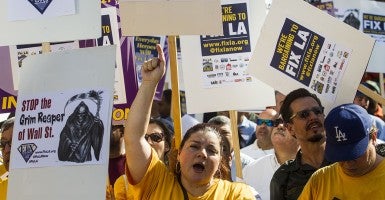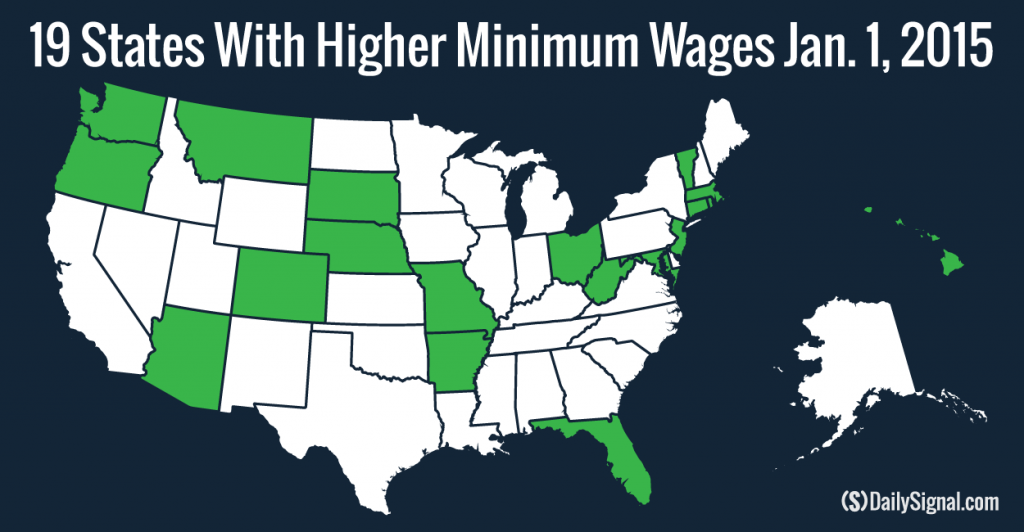A minimum-wage hike could be coming soon to a city near you.
Impatient with the federal government and inspired by the examples of Seattle, San Francisco and Oakland, several cities across America plan to raise the minimum wage on their own.
Nineteen states began 2015 with a higher minimum wage and several more will see wages rise later this year.
Here are six prominent cities that are debating a wage increase at the municipal level:
Los Angeles
There’s widespread discontent over the minimum wage in the City of Angels.
In the wake of a 2014 ordinance that increased the minimum wage to $15.37 for hotel employees, Los Angeles Mayor Eric Garcetti supports a wage of $13.25. Unsatisfied labor groups, however, are continuing to push for $15.25 an hour.
Business owners like Tony Yanow, chief executive of Gold Road, continue to watch closely.
“I love L.A. but that doesn’t mean it’s my best bet,” Yanow told the Los Angeles Times. “Do you want to go somewhere where you can make money, or do you want to go somewhere where they’re stacking the cards against you?”
Louisville, Ky.
In December, the city approved a minimum-wage hike of $9 by 2017 and subsequently tied it to the rate of inflation afterward. A developing court challenge already threatens to nix the Louisville law.
“If we’re going to have Louisville compete,” Republican Councilman Kevin Kramer told Reuters, “we have to compete on a level playing field.”
Democrat Councilman David Yates disagreed. “This is the first time we’ve done something for the workers.”
New York City
Mayor Bill de Blasio wants to enforce a municipal minimum wage.
Beset by election woes in 2014, Gov. Andrew Cuomo agreed to support a law increasing the state’s minimum wage to $10.10 while allowing individual cities to set their minimums a maximum of 30 percent higher.
In 2015, New York City could see a minimum wage of $13.13—but only if Cuomo’s proposal makes it through the Republican-controlled state Senate.
Ken Pokalsky, vice president of the New York State Business Council, tells the AP that “minimum wage increases really don’t do what people want them to” and that he disagrees with “the notion that the way to produce better-paying jobs is to pass a law requiring people to pay more than what the market suggests.”
Philadelphia
Councilman Kenyatta Johnson introduced legislation in December to increase Philadelphia’s minimum wage to $15 an hour—even though it’s against state law.
An amendment made to Pennsylvania’s wage law in 2006 increased the state’s minimum wage but prohibited cities from doing so on their own. Now, members of the City Council are ready to test that law.
Johnson tells Philadelphia Inquirer he doesn’t want to “hurt small business” but explains, “There are major corporations that could sustain such a wage increase.”
Portland, Maine
On the Atlantic seaboard, Mayor Michael Brennan is thinking about going it alone to increase the minimum wage to $9.50 this year and $10.68 by 2017.
Democrat state Sen. Justin Alfond tells NPR, “Raising the minimum wage is, morally, the right thing to do.”
Curtis Picard of the Maine Retail Association counters “that money has to come from somewhere” and, therefore, opposes the hike.
Washington, D.C.
Last year, Mayor Vincent Gray signed a law increasing the minimum wage to $11.50 an hour by 2016.
A national group, Restaurant Opportunities Center United, is now fighting to hike the minimum wage to $15.






























